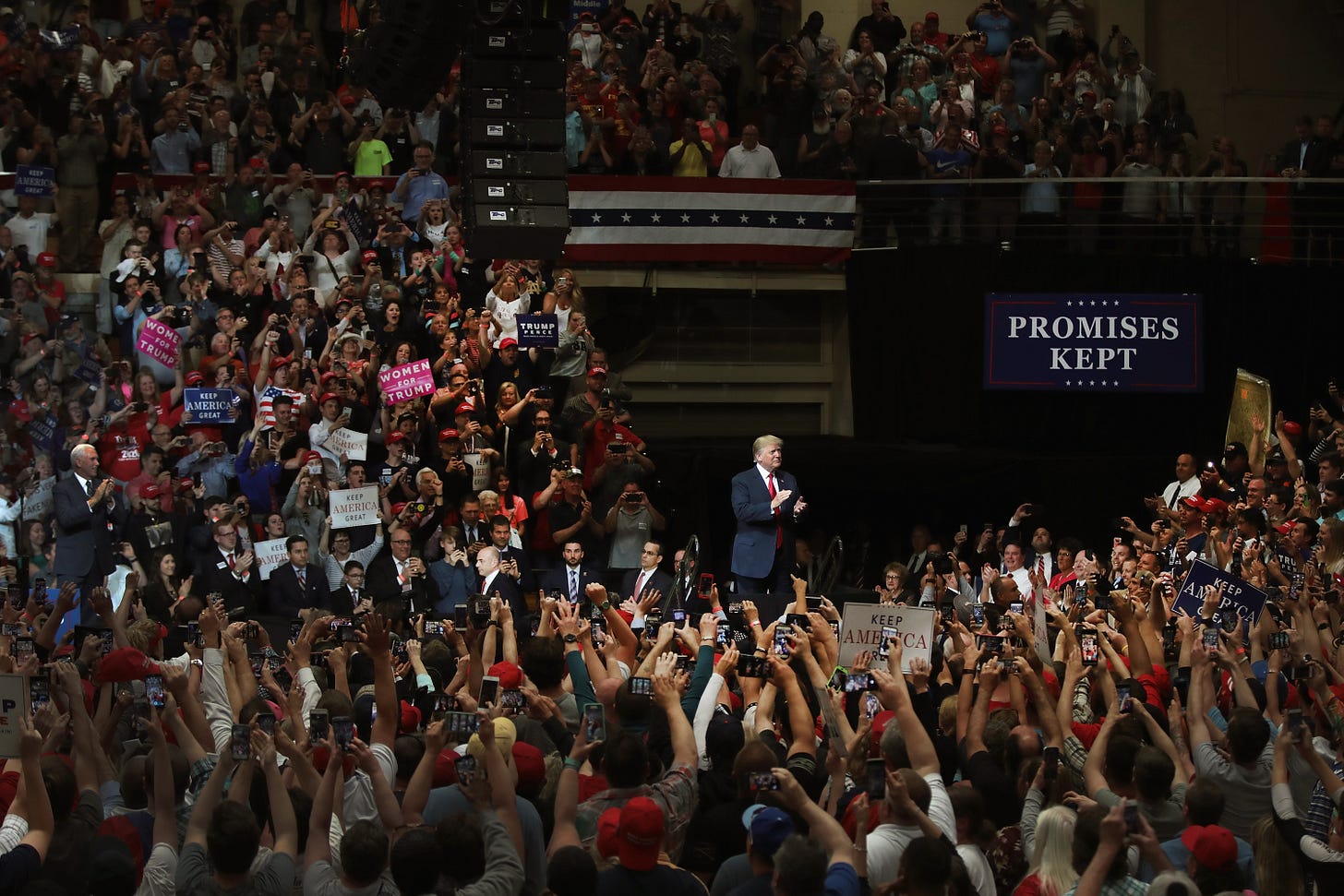Donald Trump’s Broken Trade Promises
It doesn’t appear the Trump administration knows how to shrink the trade deficit even if it wanted to.

An all-too-likely casualty of the coronavirus epidemic will be President Trump’s 2016 campaign promise of eliminating the U.S. trade deficit and weakening the dollar. If the coronavirus epidemic is not brought under control soon, the trade deficit will likely widen while the dollar will strengthen.
Among the defining characteristics of Trump’s America First trade policy has been its steadfast commitment to leveling the international economic playing field and preventing countries from manipulating their exchange rates for competitive advantage. It has also had the dual objective of reducing the trade deficit and of securing a weaker dollar.
But the administration seems to have forgotten the lessons from the twin budget and trade deficit problem of the 1980s. It would be an understatement to say that the Trump administration has failed to back up its trade deficit reduction objective with disciplined budgeting. (This was true even when Republicans controlled the White House and both houses of Congress.) Instead, as a result of the unfunded 2017 corporate tax cut, the U.S. budget deficit is now projected to remain at 5 percent of GDP for as far as the eye can see.
The net result of this profligacy has been that even before the onset of the coronavirus threat, Trump failed to deliver on his trade promises. Far from narrowing, the trade deficit has increased by about 20 percent to its present level of around $600 billion under his watch. Similarly, far from weakening, the dollar has remained at its lofty levels of early 2017.
One reason to think that the coronavirus epidemic will strengthen the dollar and expand the trade deficit is that, compared to most of the world’s economies, the U.S. economy is less exposed to a weakening in the Chinese economy. In relation to China’s Asian neighbors or to export-dependent Germany, U.S. exports to China constitute a relatively small part of overall output.
As such, any coronavirus-induced slowing in the Chinese economy will have a much larger adverse effect on the Asian and German economies than it will on that of the United States. This is bound to induce easier monetary policies in Asia and Europe than that at home. The consequent prospect of lower interest rates in Asia and Europe is likely to strengthen the dollar and undermine U.S. export competitiveness.
But there’s a more compelling reason that the coronavirus epidemic could boost the dollar’s value: global capital flows. As investors become more uncertain about the global economic and financial market outlook, they are more than likely to seek the safe haven of U.S. Treasuries. They are also likely to reverse the large capital flows that they directed to the emerging market economies over the past few years.
In a floating exchange rate system, any improvement in a country’s capital account balance necessarily must be matched by a deterioration in that country’s external current account balance. This means that if the coronavirus epidemic does indeed induce capital to flow back into the United States as investors seek to reduce their risk exposure, the U.S. trade deficit is bound to grow.
Any attempt by the Trump administration to counter a stronger dollar and a widening trade deficit by another round of import tariff increases will almost certainly be counterproductive. Such a move would deal a blow to the rest of the world’s economies, causing them to further ease their monetary policies relative to that of the United States. It would also further unsettle global financial markets, inviting more capital to seek the dollar’s safe haven.
Hopefully by now the Trump administration has learned the folly of trying to reduce the trade deficit by restrictive trade policies without the backing of sound public finances. With budget deficits as far as the eye can see, the administration could avoid exacerbating its trade problems if only it wouldn’t treat tariffs as a panacea.

